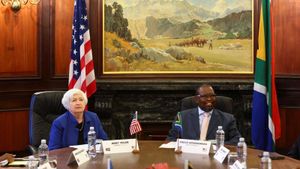The confirmation of Robert F. Kennedy Jr. as Secretary of Health and Human Services (HHS) by the U.S. Senate has already caused ripples within the political arena, with Senate Minority Leader Mitch McConnell standing out as the only Republican to vote against the controversial nomination. The Senate’s approval came by a narrow margin of 52-48, signifying not just Kennedy's ascent but also the deep divisions within the GOP on public health issues.
Following the heated vote, McConnell didn’t mince words. "I’m a survivor of childhood polio. [...] I will not condone the re-litigation of proven cures," he stated, emphasizing his gravitas as someone who has lived through the consequences of vaccine-preventable diseases. His comments carried weight, especially considering his own experience — McConnell contracted polio as a child, and he attributes his survival to the innovations of modern medicine.
Indianapolis to inject some skepticism, Donald Trump reacted vehemently to McConnell’s dissent. "He’s not voting against Bobby. He’s voting against me," Trump told reporters, indicating his frustration with McConnell’s decision. Trump's perception reflects on the broader dynamics of loyalty and partisanship within the Republican Party. Indeed, many may see McConnell's stance as a classic case of breaking ranks because of deeply held beliefs.
Throughout the confirmation process, Kennedy’s past as a prominent critic of vaccines raised red flags for many senators, including McConnell. His history of disinformation included claims linking vaccinations to autism, a thoroughly debunked theory widely criticized by medical professionals and research communities. McConnell argued, "A record of trafficking in dangerous conspiracy theories and eroding trust in public health institutions does not entitle Mr. Kennedy to lead these important efforts." Such statements painted Kennedy's approach as potentially harmful, especially when public confidence in vaccines is still needed to fight rising threats such as COVID-19 and vaccine-preventable illnesses.
Despite this opposition, Kennedy garnered significant backing from other GOP senators, swaying some with promises to maintain oversight on public health initiatives. Trump's faith in Kennedy was evident, culminating from Kennedy's condemned yet consistent postures on chronic health issues, which has occasionally echoed concerns on the political stage.
Medical professionals have also chimed in, with experts like Paul Offit expressing grave reservations about Kennedy’s confirmation. “He’s a frightening man, a dangerous man, and I think he’ll do harm,” Offit stated bluntly, showcasing the urgency with which many view this appointment. Critics argue Kennedy may not only erode public health trust but also reshape health policy to reflect his personal beliefs, which regularly veer toward conspiratorial thinking.
This political saga is amplified by remarks from Senate Democrats who underlined the conflicts of interest surrounding Kennedy, particularly his financial ties to lawsuits against pharmaceutical companies. The opposition warned against potential bias when Kennedy would lead the very department responsible for protecting public health interests. Previous allegations against him, including sexual misconduct claims, have only intensified scrutiny from both sides of the aisle, making his nomination one of the most contentious of the current administration.
Despite bipartisan concerns, Kennedy’s supporters, buoyed by Trump's endorsement, believe his experience aligns closely with modernizing health initiatives to counter the rising chronic illness crisis. The focus on discharging accountability from companies within the food industry appears attractive. Still, many question how Kennedy’s rhetoric, laden with vaccine skepticism, would mesh with the scientific frameworks needed to drive effective health policies.
Moving beyond party lines, McConnell’s opposition could signal the dawn of broader fractures within Republican alignment on public health matters. His dissent, supported by legitimate fears over the scientifically-supported safety of immunizations, exposes how diverging values around health issues might shape future party decisions.
With HHS overseeing over 80,000 employees and managing significant budgets exceeding $1.7 trillion, critics remain eyeing how Kennedy’s leadership could steer health policies to align more closely with personal beliefs, potentially sidelining expert opinions. The challenges, coupled with Kennedy's previous stances and rhetorical choices, could lay the groundwork for heightened tensions between established scientific consensus and anecdotal beliefs.
Now confirmed, the big question remains: will Kennedy’s tenure be characterized more by confrontation or collaboration with traditional public health protocols? Only time will tell if the choices being made now will create rifts or find reconciliation between public health initiatives and political pressures.



